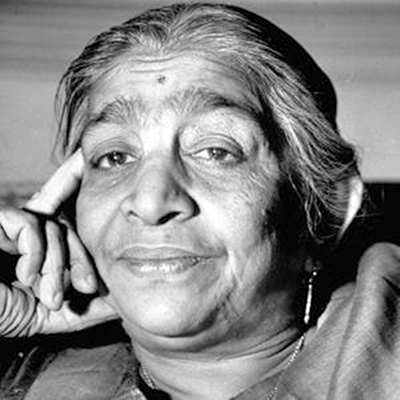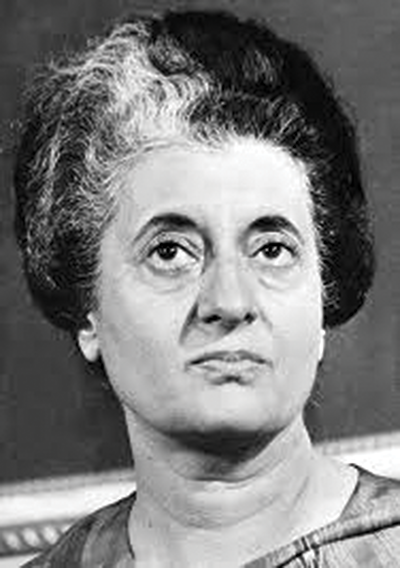Women and girls in the developing world are often denied opportunities for education, which limits their prospects and decreases family income. It leads to high risk of trafficking and exploitation. This also limits the economic advancement of the entire country. But in many cases, studies have revealed that girls do better than boys at school, even in countries where women’s liberties are often seen to be restricted. A study carried out by the psychologists at the universities of Glasgow and Missouri during the time period from 2000 to 2010, showed that even in countries, which are known for their lack of gender equality, including Qatar, Jordan and the United Arab Emirates, girls still outshine the educational performance of boys.
Women education goes beyond getting girls into school. It is also about ensuring that they learn and feel safe while in school and complete all levels of education with the skills to effectively compete in the labour market. There are several women who are fighting around the world for the rights of women like Malala Yousafzai, Michelle Bachelet, Michelle Obama and others.
Indian women have always been an epitome of strength and intelligence. Today, the success of Indian women across various walks of life has proven that they have earned this reputation very deservingly. Indian women have also been able to make their mark in different fields like politics, sports and others. Most of today’s Indian women politicians are second or third generation leaders.
Anandi Gopal Joshi
She lost her first child at the age of 14, due to non-availability of Medical facilities. The event proved to be a turning point in her life and she decided to become a physician. Anandi Joshi graduated from Women’s Medical College of Pennsylvania (now known as Drexel University College of Medicine) at the age of 19 and got her M.D. degree in 1886. She completed her thesis on obstetric practices among the ancient Hindus.
Cornelia Sorabji
Cornelia Sorabji became the first woman to practise law in India. After she received a first class degree from Bombay University in 1888, British supporters helped to send her to Oxford University. Here, Sorabji became the first woman to sit the Civil Law exams but was not able to graduate as women could not be awarded degrees until 1920. She returned to India in 1894. After a long struggle with the authorities, she became legal advocate for women in purdah, who’s religious and cultural beliefs prevented them from speaking to men outside their family.
 Sarojini Naidu
Sarojini Naidu
Sarojini Naidu, a freedom fighter and poet, was the first woman governor of an Indian state. She presided over the East-African Indian Congress in South Africa in 1929 and was awarded the Kaisar-i-Hind Medal by the British government for her work during the plague epidemic in India.
Rajkumari Amrit Kaur
She was a Gandhian and a freedom fighter. She was the first Indian woman to hold cabinet rank after independence and was India’s first health minister. She helped to frame our Constitution and when she passed away in 1964, the New York Times called her “a princess in her nation’s service.” She also helped to initiate the All India Institute of Medical Sciences (AIIMS) and was a leading campaigner for women’s right to vote.
Vijaya Lakshmi Pandit
She was a diplomat and the sister of former Prime Minister Jawaharlal Nehru. She was the first Indian woman to hold a cabinet post in pre-independence India. She also headed the Indian delegation to the United Nations between 1946 and 1968 and in 1953 she became the first woman President of the United Nations General Assembly.
Anna Chandy
Justice Anna Chandy (1905-1996), also known as Anna Chandi, was the first female judge in India and also the first woman in India to become a high court judge. In fact, she was the first woman judge in the entire Anglo-Saxon world, decades before Elizabeth Lane.
Sucheta Kripalani
She was India’s first woman chief minister, served as the head of the Uttar Pradesh government from 1963 to 1967. She was founder of the Congress’ women’s wing in 1940 and is remembered as a fearless leader.
 Indira Gandhi
Indira Gandhi
She was referred to as the ‘first woman in a man’s world’, the first woman Prime Minister of India. She was the only PM of India to have used emergency powers. She went from being compared to Goddess Durga during the war for the freedom of Bangladesh to being vilified during the infamous Emergency.
Meira Kumar
She is the first woman Speaker of the Lok Sabha. She ended up losing the battle for the post of the President of the country but has set the record for obtaining the most number of electoral votes (3, 67,314) by a losing candidate.
Aruna Roy
She is best known for her efforts to fight corruption and promote governmental transparency. She realised that teaching wasn’t her passion as she aimed to become a civil servant. She cleared the Indian Administrative Services (IAS) examination in 1967. Aruna is known as a prominent leader of the Mazdoor Kisan Shakti Sangathan (MKSS), a social organisation for the empowerment of workers and peasants. In 2005, she played a crucial role in establishing the Right to Information Act (RTI). Aruna has received various awards for her service to the society, such as the Ramon Magsaysay Award for Community Leadership in 2000, Lal Bahadur Shastri National Award for Excellence in Public Administration, Academia and Management in 2010. In 2011, she was named one of the ‘100 most influential people across the world’ by Time Magazine.
Kiran Bedi
She is a social activist and the first woman IPS officer of India. She has not only served her department with full conviction but has also made whole-hearted contribution to many social causes. She is credited for bringing down the number of crimes against women in West Delhi during her service. She introduced several reforms at Tihar Jail, which gained worldwide acclaim and won her the Ramon Magsaysay Award in 1994. In 2003, Kiran became the first Indian woman to be appointed as a Police Advisor to the Secretary-General of the United Nations in the department of Peace Keeping Operations.
Medha Patkar
She is a social reformer turned politician. Being the daughter of a trade union leader, she started early in understanding the problems faced by the underprivileged and felt the need to serve them. She left her academic career and became completely involved in the tribal and peasant communities in Maharashtra, Madhya Pradesh, and Gujarat. She is best recognised as the founding member of the famous Narmada Bachao Andolan – a movement to save the rivers and people of Gujarat.
Irom Sharmila
She is popularly known as the “Iron Lady of Manipur” and is the most recognisable face of the north eastern Indian state. On November 2, 2000, she began a hunger strike after the “Malom Massacre” where 10 people were killed. Having refused food and water for more than 500 weeks, she has been recognised as “the world’s longest hunger striker.” On International Women’s Day, 2014 she was voted the top woman icon of India by MSN Poll.
Laxmi Agarwal
She is an Indian campaigner against acid violence and a TV host. She is an acid attack survivor and speaks for the rights of acid attack victims. She was attacked in 2005 at age 15. She has also advocated against acid attacks through gathering 27,000 signatures for a petition to curb acid sales and had taken that cause to the Indian Supreme Court. Her petition led the Supreme Court to order the central and state governments to regulate the sale of acid. She is the director of Chhanv Foundation, an NGO dedicated to help the survivors of acid attacks in India.
Add new comment